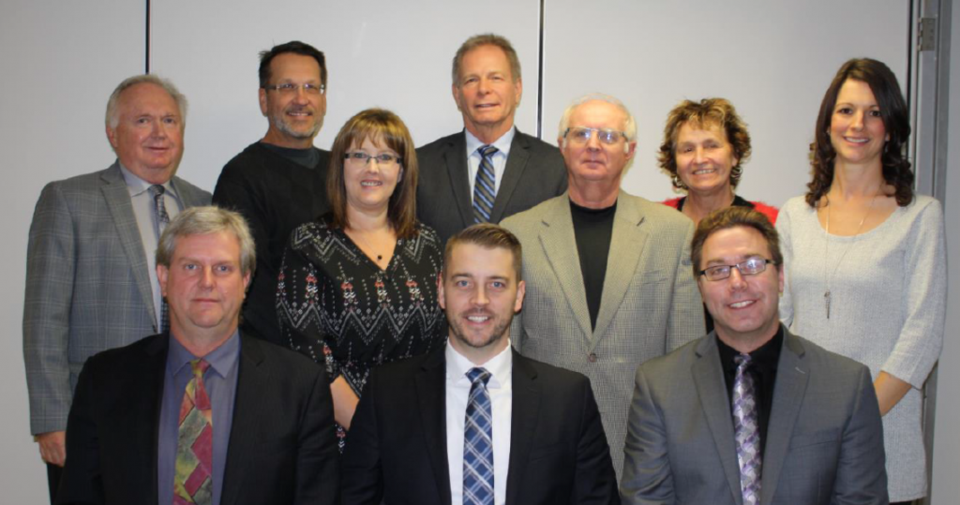Prairie South School Division will continue to fund 10 pre-kindergarten programs worth $400,000 even though it does not receive any extra money from the Ministry of Education to do so.
These particular 160 pre-kindergarten spots for kids ages three and four were first created during the 2017-18 school year when the board directed $1 million in reserve money to support the initiative. After that year, PSSD paid for the program as a regular budget item.
The 10 division-funded programs are located in Central Butte, Coronach, Glentworth, Gravelbourg, LaFleche, Lindale, Palliser Heights (two), Rouleau, and Sunningdale. There are six other pre-k programs in PSSD that the Ministry of Education funds.
During their most recent board meeting, trustees discussed a motion that would see Prairie South School Division (PSSD) stop supporting non-provincially funded pre-kindergarten at the end of this school year and direct that funding toward kindergarten to Grade 12 programming, with the specific purpose of addressing the issue of classroom composition complexity and to minimize the challenges from that.
The vote on the motion ended in a tie, which meant it was defeated. In favour were trustees Brian Swanson, Tim McLeod, Shawn Davidson, Al Kessler and Robert Bachmann. Opposed were trustees Lew Young, Mary Jukes, Giselle Wilson, Darcy Pryor and Jan Radwanski.
Board discussion
PSSD has more pre-k programs than any other school division, said Swanson. Some don’t have any pre-kindergarten initiatives, while some use fee-for-service or community programs.
No new provincial funding has been allocated to PSSD since it expanded the program, while it has had a static budget for two straight years, he continued. The initiative will not spread to other schools given PSSD’s financial position; three of the division-funded programs do not even have full enrolment.
“K to 12 is our mandate. We have 6,860-plus students in K to 12. Having a non-funded pre-k is a luxury. It’s not what we can afford anymore … ,” Swanson said, who thought the province should cover that cost.
There are 3.75 full-time equivalent teacher positions and 3.75 FTE educational assistant positions involved in the 10 programs, explained education director Tony Baldwin. If the motion passed, PSSD could re-allocate those teachers to other areas and roll the EAs into the system.
Programs are part of history
This is a topic that the board has discussed often during the last 10 years, said Young. The pre-kindergarten program is close to his heart and has been part of his re-election campaigns. This program has also been part of the division’s history, dating back before the amalgamation in 2006.
This program is unique since no other school division in Saskatchewan fully funds its pre-k programs, he continued. While the provincial government funds special programs sporadically, Prairie South believes the programs are a benefit to kids — about $2,500 is invested in each child — and are a high priority.
“Early education gives a head-start to children, as they begin their education career,” Young added. “This has been a hallmark of Prairie South.”
The number of students in the program (160) is equal to the size of three or four schools, said Young. The board would not close such schools — or programs of this magnitude — without first consulting with stakeholders. To do it now would be wrong.
Addressing classroom complexity
The board has given clear direction to Baldwin and division office staff: it wants classroom complexity and composition — mainly student behaviour — addressed properly, Baldwin said. PSSD administrators would work to mitigate those concerns if the $400,000 became available and would use that money to support students.
Trustees should know that this would be a major adjustment in their strategic direction, he continued. However, they have the authority to adjust that direction, which would focus less on three- and four-year-olds and more on students who in K to 12.
While trustee McLeod has been a long-term supporter of the pre-k programs, he said that he couldn’t deny the programs fall outside of PSSD’s mandate. Educating the youngest comes at a cost since the division has not received extra funding for this. Furthermore, K-12 teachers have told trustees they need help in the classroom. Money needs to be found to address that concern.
Helping vulnerable children
The board would do a disservice to classroom teachers by eliminating these programs since at least 48 pre-k students who require extra support would be sent into the regular system earlier than necessary, said Wilson. The timing is also poor since the board can’t speak with school community councils about this.
PSSD is unable to catch all the vulnerable students anyway since some students who show up in kindergarten could have qualified for a ministry-funded program, said Davidson.
The most pressing issue PSSD faces is supporting vulnerable students and addressing classroom problems, he added. Teachers are not addictions counsellors, social workers or psychologists; they are trained to teach and should not be expected to perform these roles.
Use available reserves
The board should consider using some of its reserves to fund this program since it could sit on this money forever, said Jukes. The division-funded pre-k programs are an enhancement of the main K-12 program and should be supported.
Reserve money is not suitable for operational expenses, and if the board is going to support something, it should focus on its K-12 mandate, said McLeod. It’s not appropriate to dip into reserves to deal with classroom problems since those should be addressed continually. PSSD would run out of reserve money if it did that.
“If there’s any use of reserve funds, it should be for a luxury. I would not call the pre-k program a luxury,” he added. “It is outside of our mandate.”




